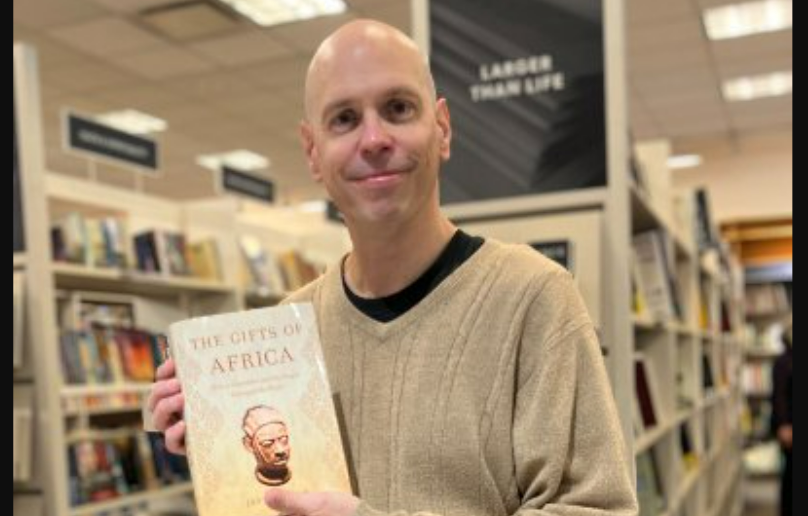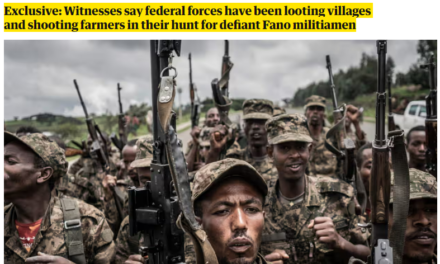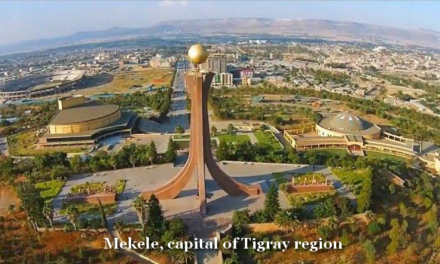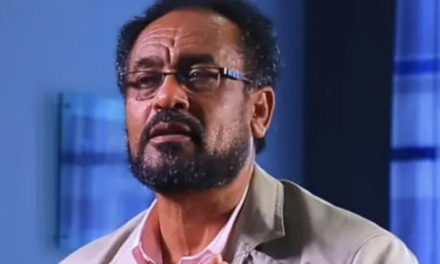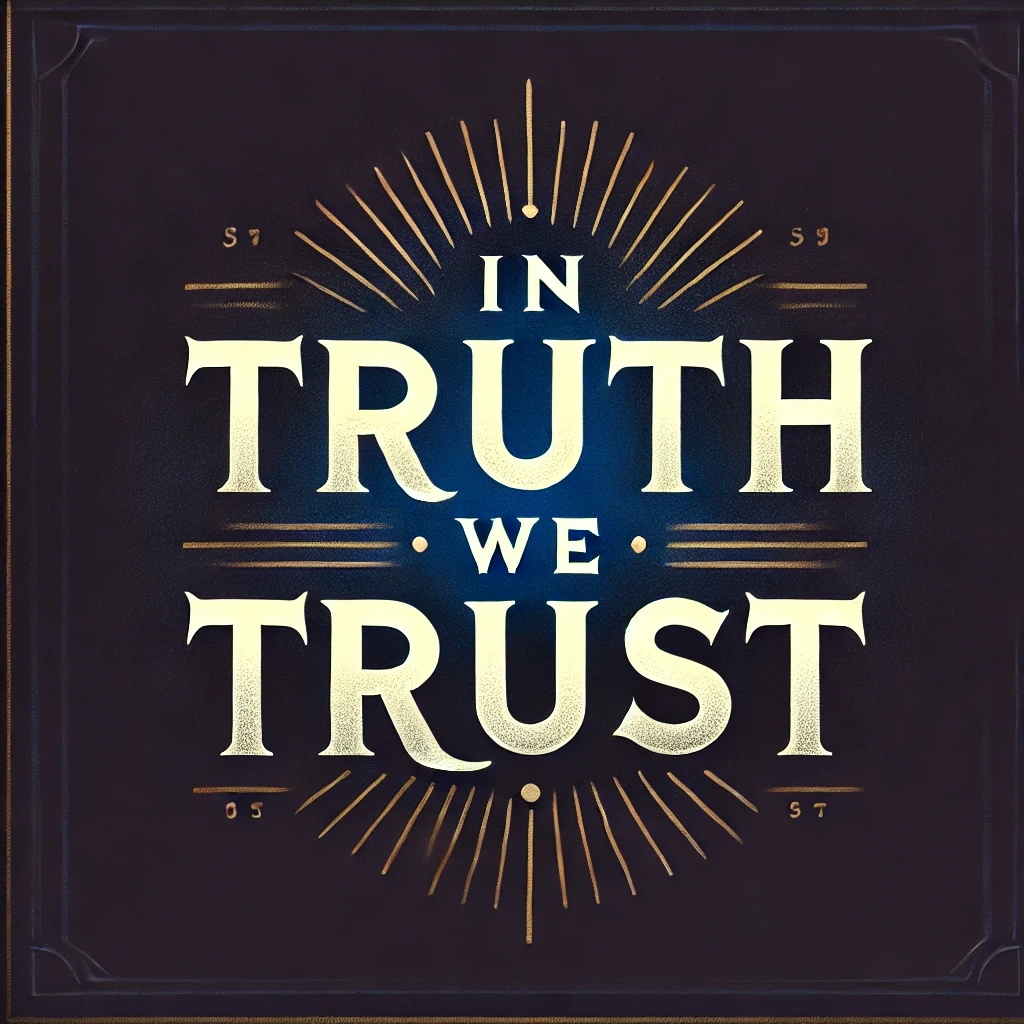By Abebe Gellaw
In a recent interview on Ethio Voice Network (EVN), renowned Canadian author, historian, and journalist Jeff Pearce discussed the history of Ethiopia, ethnic divisions, and the importance of truth in addressing the country’s complex challenges.
Pearce, who is the author of “Prevail,” which explores Ethiopia’s resistance against fascist Italy, and “Winged Bull and the Gifts of Africa,” emphasized his belief that the false narrative on Amhara hegemony is a myth with devastating consequences. According to him, the Amhara people have endured oppression much like other ethnic groups in Ethiopia, spanning various regimes, including the Derg, which started its reign with the slaughter of Amhara aristocrats.
In the first of the two-part interview, Pearce stressed the heavy toll that ordinary Amharas are paying due to unfounded narratives, manifesting in persecution, mass displacement, and widespread killings. He critiqued the false narrative surrounding Amhara dominance and historical distortions frequently exploited for political ends, notably by the Tigray People’s Liberation Front (TPLF). He contended that these claims lack substantive evidence and are built upon a deliberate misrepresentation of history to marginalize and persecute Amharas within their own homeland. Pearce argued that Ethiopia’s rich ethnic diversity, intermarriages, and centuries of cultural mix challenge the idea of Amhara supremacy.
Drawing a comparison between the TPLF’s early activities and ISIS, Pearce noted how the TPLF initially comprised individuals he referred to as “thugs,” engaging in acts like the kidnapping of foreigners to fund their cause. The TPLF’s transformation from a militant group into a prominent political force in Ethiopia marked a significant shift. Pearce remains convinced that the TPLF is still a terrorist group that poses a threat not only to Ethiopia but to the entire Horn of Africa.
Pearce accused the TPLF of establishing an oligarchy driven by the accumulation of wealth. He alleged corruption within the TPLF, including the misappropriation of foreign aid and investments. He claimed that TPLF oligarchs sent their children abroad for education and strategically placed them in influential positions within human rights organizations, the United Nations, and American politics. “The TPLF were very clever. I give them points for this. They fashioned an oligarchy Russian style,” he said.
On the issue of Welkait, historically part of Gondar / Begemidir but forcibly annexed by the TPLF in the early 1990s, he emphasized that the natural border between Tigray and the Amhara region has been the Tekeze River since time immemorial.
He criticized U.S. Secretary Anthony Blinken for his vocal stance on the issue without a complete understanding of the complexities of the Welkait issue, which the TPLF renamed “Western Tigray.” Pearce referred to Blinken as “a man who keeps pushing on doors marked push” and hinted at lingering TPLF influence within the U.S. government through their cronies such as Susan Rice.
Pearce further pointed out the distorted historical narratives propagated by ethnonationalist scholars such as Professor Mohammed Hassen. Pearce vehemently rejected Hassen’s assertion that 5 million Oromos were killed during Emperor Menelik’s reign, describing it as a laughable and contemptuous claim. He questioned the credibility of Hassen’s sources, including an obscure figure named De Salviac, and challenged the feasibility of such a massive genocide occurring without substantial archaeological and historical evidence.
Pearce’s critique extended beyond questioning the accuracy of Hassen’s claims; he accused Hassen of selectively choosing historical events and time periods that aligned with his thesis while ignoring contrary evidence. Pearce underscored the danger of selective historical narratives in perpetuating falsehoods and distorting the broader understanding of historical events.
He also mentioned the complexity of Ethiopian history, emphasizing intricate interactions between different ethnic groups over time. He suggested the potential for a more nuanced and honest discussion of history, including the Oromo conquest of Ethiopian territory, which he argued is rarely acknowledged in contemporary debates. Pearce expressed skepticism toward distorted narratives possibly driven by political or ideological motivations, emphasizing the importance of evidence-based and balanced historical perspectives.
Pearce emphasized the Oromo migration’s history of conquest in the 16th and 17th centuries when the Oromos colonized various regions of Ethiopia. He stressed that what often goes overlooked is the intricate process of cross-assimilation that transpired over time. While the Oromos initially colonized Ethiopian territories, they assimilated some Ethiopians into their Gada system, and conversely, many Ethiopians resisted this assimilation. Additionally, Pearce pointed out instances where Ethiopians assimilated into Oromo culture.
Jeff Pearce’s perspective on Ethiopian history, particularly the Oromo migration, serves as a rebuttal to contemporary notions of ethnic division. He posited that throughout history, factors other than ethnicity, such as Church families, aristocrats, and land, were the prevailing drivers of Ethiopian society. Pearce contended that attempts to overlay an ethnic template onto historical events, such as the Derg regime, were misguided. He highlighted the diversity within Ethiopian leadership, even during periods often simplistically characterized by ethnic dominance. Pearce’s argument centered on the imperative need for accurate historical instruction to dispel misconceptions and foster a more nuanced understanding of Ethiopia’s complex history. He maintained that Ethiopia’s historical narrative involved collaboration and competition among various groups, challenging the prevailing narrative of ethnic division and animosity.
Pearce further pointed out that allegations of Amhara hegemony had dire consequences for ordinary Amhara people, who suffered violence and atrocities across various Ethiopian regions. He underscored how such distortions impact the identity and safety of the Amhara population, drawing parallels with historical stereotypes and discrimination against other ethnic groups globally, such as the Jews.
Pearce also provided historical context, mentioning that the TPLF initially collaborated with Amhara forces to seize power but later turned against the Amhara. He suggested that Western governments’ support for the TPLF may have been influenced by geopolitical factors and ideology rather than a genuine understanding of Ethiopian history and politics. Pearce’s views underscored the necessity for a more accurate and nuanced comprehension of Ethiopia’s complex history and ethnic diversity to address the ongoing crisis and prevent further violence against the Amhara people.
Jeff Pearce expressed critical views concerning Alex De Waal, whom he characterized as a propagandist for the TPLF (Tigray People’s Liberation Front). Pearce’s stance toward De Waal reflected his profound skepticism about external actors and scholars who, in his view, may align with or support the TPLF’s agenda. He accused De Waal of advancing a particular narrative that favored the TPLF while downplaying other perspectives and facts surrounding the Ethiopian conflict.
Pearce’s criticism of De Waal appeared rooted in his broader concerns about the objectivity and impartiality of scholars and experts engaging with Ethiopian affairs. He implied that De Waal’s work might lack the necessary balance and rigor required to provide a comprehensive understanding of the complex issues in Ethiopia. Pearce’s skepticism aligned with his overall perspective that external actors and scholars should exercise caution and diligence when assessing Ethiopia’s situation. “My biggest problem with Alex de Waal is he’s a big fat liar,” and described him as someone who proudly tangles up with intelligence communities.

